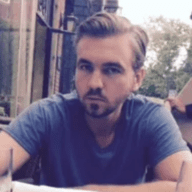In the world of rare disease, many of the biggest advancements occur in large part due to the work of the parents of patients. When children are diagnosed with an illness, parents around the world adopt a number of important roles with extreme fervor. In many cases, parents don’t waste any time feeling bad for themselves or their child—instead they invest that energy into finding solutions.
Rare parents often have to be all of the following:
Caregivers: When it comes to administering the best care, rare parents often have to take the reins and do it themselves. Most families choose to do as much as they can in house. They don’t want to rely on nurses or constant trips to hospitals and medical facilities if they can avoid it. Plus, when treatments and routines can be carried out at home, it makes life easier for the child.
Experts: An all too common experience among rare parents is having to explain their child’s disease to the doctors who are treating them. Parents often find that they have to keep up with medical literature as it pertains to their child’s illness. Doctors have to take a general approach to their practice, and aside from a handful of specialists, they rely on parents to help them make the best treatment decisions.
Advocates: Rare diseases never get their fair share of attention. That means that parents have to be their child’s biggest advocates. Whether this means working with pharmaceutical companies, meeting with legislators, or collaborating with foundations, rare parents put in so much work when it comes to giving their children a voice and driving awareness for their disease.
Organizers: Rare diseases are not rare. The impact is far and wide. Rare parents create foundations, form bonds, and manage events. They are so powerful on their own, and this power is multiplied by the numbers they achieve when they come together.
Rare parents are heroes. For every breakthrough that has occurred in the world of rare disease, there have been parents who helped make it happen. They never receive enough credit, but thankfully that’s not what they’re looking for—they only want a better life for their children.

